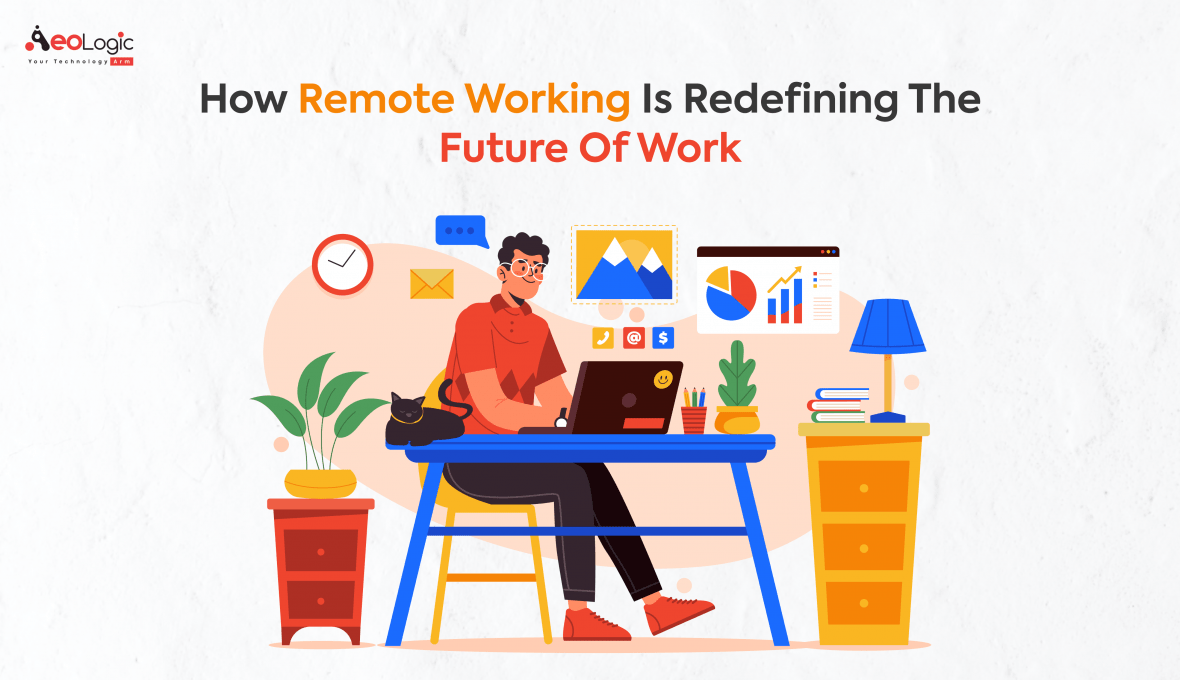Let’s Start with a Simple Fact,
Work isn’t a place you go to; it’s what you do. The importance of remote work has become abundantly clear, as it has revolutionized our traditional concepts of employment and productivity. No longer are we bound by the four walls of an office, working rigidly from 9 to 5.
A staggering 74% of professionals expect remote work to become a standard following the pandemic, according to Intermedia’s 2020 report. The implications are profound. It’s more than just working in your pajamas – it’s about changing the very foundations of our work culture.
The Great Workplace Migration

But why is this shift happening? What is the importance of remote work? Why should you care about it? Let’s break it down:
- Flexibility: You’re no longer confined to a cubicle. You can work anywhere, at any time. This offers incredible flexibility to balance work and personal life, which is a boon for mental health.
- Increased Productivity: Stanford University found that remote workers are 13% more productive than their in-office counterparts. A calm environment and less time spent commuting result in more work done.
- Cost Efficiency: With no need for office space, businesses can save on rent, utilities, and equipment. As an employee, you save on commuting, meals, and formal attire.
The importance of remote work goes beyond these tangible benefits. It’s about embracing a more human-centric work culture, where employees are treated as individuals, not just resources.
The Impact on the Global Workforce
Remote work isn’t just about how we work it’s about who gets to work. The importance of remote work is that it democratizes employment opportunities. You can work for a company halfway across the world without leaving your hometown. This globalizes the workforce, leading to a more diverse and inclusive environment.
According to a Gartner report, 80% of company leaders plan to allow employees to work remotely at least part of the time after the pandemic. This will increase job accessibility for those in rural or underserved areas, those with disabilities, and those with family responsibilities. The importance of remote work for these groups cannot be overstated.
Also Read: How to Improve Your Work- Life Balance Today
Top 10 Benefits of Remote Work

As we delve deeper into the importance of remote work, let’s look at the top 10 benefits it brings to the list:
- Flexibility: The ability to work whenever and wherever allows for a better work-life balance.
- Increased Productivity: A Stanford study found that remote workers are 13% more productive than their office-bound colleagues.
- Cost Savings: No commuting costs, no office attire, and potentially lower costs for food means more money in your pocket.
- Less Stress: The absence of a daily commute and a more relaxed work environment can reduce stress and improve mental health.
- Custom Work Environment: Whether you prefer silence or blasting your favorite tunes, you can create your perfect workspace at home.
- Reduced Absenteeism: Employees are less likely to call in sick when they can work comfortably from home.
- More Time: No commuting means gaining back hours each week that can be spent on hobbies, family, or even more work.
- Healthier Lifestyle: With more time, you can cook healthier meals, squeeze in a workout, or take breaks to stretch or meditate.
- Global Job Opportunities: You’re not restricted by location. You can work for any company, anywhere in the world.
- Environmentally Friendly: No commute means a smaller carbon footprint, contributing to the fight against climate change.
Each of these benefits emphasizes the importance of remote work, not just for employees, but also for employers and the environment. This new way of working is quickly becoming the norm, so it’s crucial to understand and embrace its advantages.
Also Read: Smart Ways to Improve your Work-Life Balance
The Future of Work is Here, and It’s Remote
As the importance of remote work grows, businesses need to adapt. This isn’t a fleeting trend; it’s the new normal. Here’s what you can expect:
- Virtual Collaboration: As more teams go remote, we’ll see an increase in virtual collaboration tools. These tools will continue to evolve, offering more features to mimic in-person interactions and build team camaraderie.
- Employee Autonomy: With remote work, micromanagement becomes impractical. Instead, managers will need to trust their employees and measure performance based on output, not hours spent at a desk.
- Work-Life Integration: Instead of struggling to separate work and life, we’ll see a seamless integration. The focus will shift from work-life balance to work-life harmony.
It’s clear that the importance of remote work goes beyond the current moment. It’s a seismic shift that’s redefining the future of work.
Also Read: Best Strategies to Improve Employee Productivity
Embracing the Change of Remote Work

The future might feel uncertain, but it’s also exciting. Embrace the importance of remote work. We’re not just working from home; we’re witnessing a revolutionary shift in how work is done.
Don’t be afraid to lean into this change. Experiment with your workspace, explore new collaboration tools or simply enjoy the flexibility that remote work provides. It’s your chance to define your own work culture.
Final Words
In our current era, the importance of remote work is undeniable. It’s not just a trend; it’s a movement. One that’s breaking down barriers, shattering old norms, and setting the stage for a more inclusive, productive, and flexible work culture.
As we navigate this shift together, remember that remote work isn’t just about surviving; it’s about thriving in a rapidly changing world. And who knows? You might just find that the future of work is better than you ever imagined.
Navigating remote work? Embrace the new era with Aeologic Technologies. For comprehensive tech solutions, we’re your reliable partner. Let’s redefine your future of work together.
Frequently Asked Questions about Remote Work
Does remote work affect productivity?
Absolutely, and it’s usually for the better! A Stanford study found that remote workers are 13% more productive compared to their office-bound peers.
How does remote work impact work-life balance?
Remote work typically enhances work-life balance due to the increased flexibility it offers. You can manage your time according to your personal needs, leading to a healthier work-life harmony.
Can all jobs be done remotely?
While many jobs can be done remotely, not all can. Jobs that require physical presence, like healthcare, construction, and many service jobs, still require on-site work. However, the rise of remote work is expanding the range of jobs that can be performed from anywhere.
What are some challenges of remote work?
Remote work can lead to feelings of isolation and lack of social interaction. It can also blur the boundaries between work and personal life. It’s important to set clear boundaries and take time for social activities to address these challenges.






